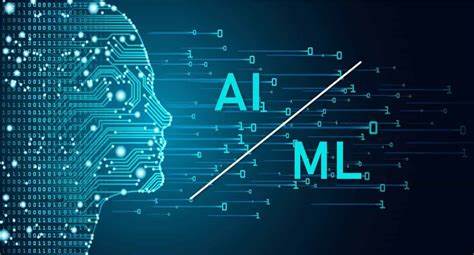Artificial Intelligence (AI) and Machine Learning (ML) continue to evolve at a rapid pace, with significant advancements shaping various industries. Here's a roundup of the most notable developments as of May 2025:
Generative AI and Agentic AI Take Center Stage
At the RSA Conference 2025, AI emerged as the dominant theme, particularly generative and agentic AI. These technologies are being integrated into security operations centers and application security, enhancing the ability to safeguard large language models (LLMs) and streamline compliance processes. Experts highlight how AI, especially ML and natural language processing, offers critical advantages for overwhelmed security teams by reducing alert fatigue and automating threat detection.
Meta Restructures AI Teams to Compete with OpenAI and Google
In response to increasing competition from companies like OpenAI and Google, Meta is restructuring its artificial intelligence (AI) teams to accelerate the development and deployment of new AI products and features. The company has created two new AI divisions: the AI Products team and the AGI Foundations unit. This move aims to enhance Meta's position in the competitive AI landscape and drive innovation in areas such as large language models and artificial general intelligence.
AI-Powered Smart Homes Gain Traction
Tech giants Amazon, Google, and Samsung are intensifying competition in the rapidly expanding AI-powered smart home market, projected to reach $1.35 trillion. Amazon has launched Alexa+, an enhanced voice assistant that enables more conversational and autonomous interactions, such as making restaurant reservations and managing home settings. Samsung is highlighting its SmartThings platform and proprietary Bixby assistant, which it claims has superior product knowledge for troubleshooting. These innovations reflect a future where home technology becomes more intuitive, efficient, and personalized.
AI Financial Advisors: A Growing Trend
AI technology is increasingly being used as a cost-effective alternative to traditional financial advisors. Platforms like Mezzi and PortfolioPilot offer users financial insights and recommendations tailored to individual portfolios by leveraging large language models (LLMs) and real-time market data. While these systems can analyze financial goals and investment strategies, challenges remain in areas such as accuracy, ethical responsibility, and customization of advice. Experts emphasize the importance of human consultation for complex financial scenarios.
AI Tool Reduces Food Waste Significantly
A new artificial intelligence tool developed by Zest is being trialed in the UK by companies including Nestlé to combat food waste. In a two-week initial trial at a Nestlé factory, the AI tool achieved an 87% reduction in edible food waste by offering real-time monitoring and insights. This pilot could potentially save up to 700 tonnes of surplus edible food—equivalent to 1.5 million meals—and prevent 1,400 tonnes of CO2 emissions. The initiative aims to expand across the food supply chain and assist charities in distributing food to organizations in need.
Edge AI: Intelligence at the Periphery
Edge AI, which brings artificial intelligence capabilities directly to edge devices, has matured remarkably in 2025. This trend is driven by the need for real-time processing, reduced latency, and enhanced privacy. Key developments include advanced AI chips designed specifically for edge devices, improved federated learning techniques, and the integration of 5G and edge AI. These advancements are transforming IoT ecosystems, enabling smarter, more responsive devices in sectors such as healthcare, manufacturing, and public safety.





